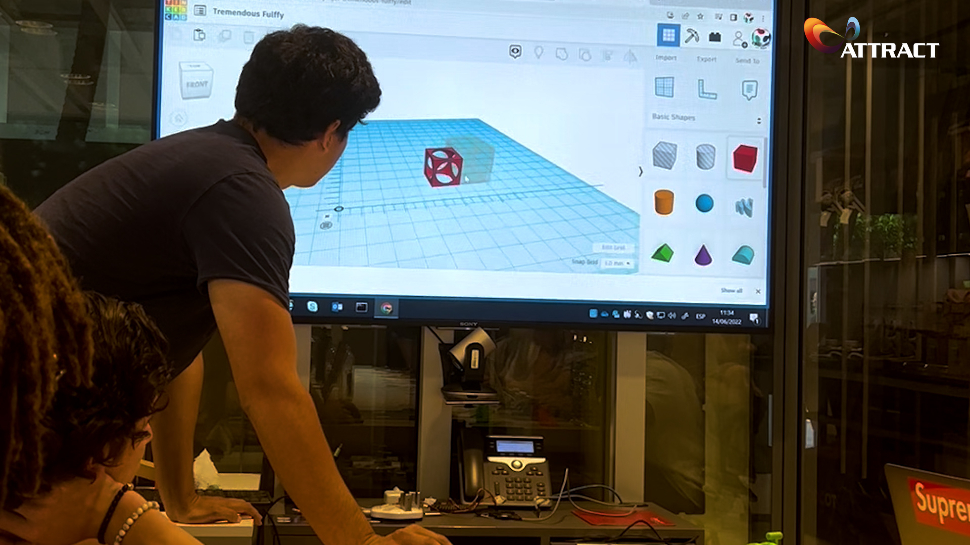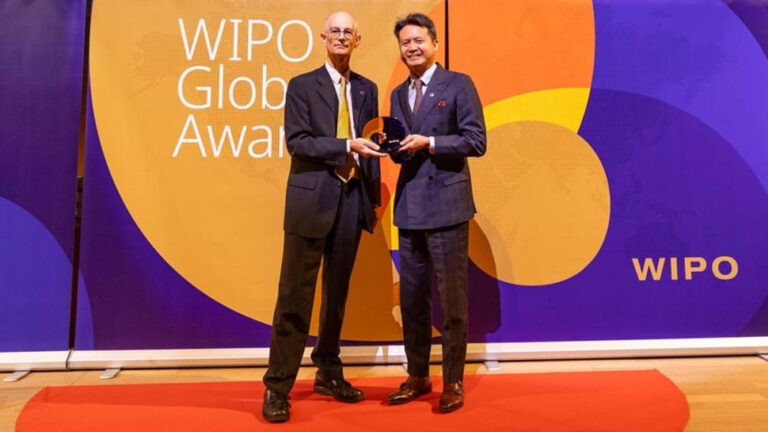The ATTRACT CERN IdeaSquare Summer School (ACISS) is a program that is aimed at students from multiple fields like Aerospace, Design, Social Studies, and Architecture, among others, who have to work in interdisciplinary teams to explore a challenge which is focused on one of the United Nations Sustainable Development Goals (SDGs).
Within this program, the students are encouraged to immerse themselves in the context, empathise with the users, learn in context and take a critical, but nurturing stand towards personal reasoning as well as the reasoning of peers while searching for breakthrough innovations in new domains.
ACISS is aimed at students from Delft University of Technology, Esade and Laurea University of Applied Sciences and during the course, they have to use the ATTRACT technologies to come up with new service solutions.
Discover more about ACISS through this interview with a teacher and a student that participated in the first round of this program:
Virpi Kaartti
Coordinator of the Laurea University of Applied Sciences.
Which university and courses are part of your consortium and what brings you all together?
In our consortium, we have Laurea University of Applied Sciences from Finland, Delft University of Technology from The Netherlands and Esade from Spain. We run in parallel three courses and each of us approaches the design challenge from different angles: one starting from the technology, one from the human perspective, and one having a blend of both.
How do you think society will benefit from this project?
I think that the students play the main role here. They learn to work and co-innovate in lots of ecosystems with various actors from business research and academia come together. They adopt a design mindset that guides them to solve complex problems in society and the benefit will come when they bring this mindset and way of working to the organizations.
How do you envision participating in this project will contribute to your personal and professional development?
The project has already given me a lot, a lot of new insights and also the various discussions that challenge my current thinking and opens ups new perspectives, and then of course my network has grown and that brings value already now but also in a long run.
Joachim Bron
Aerospace Engineering student at Delft University of Technology.
How do you find working with the R&D&I projects?
My team worked with the HIP-MED technology, which is a hyperspectral camera used originally for cancer cells, and we decided to apply it in a different application to monitor art. And I really enjoyed looking for these new applications and the whole design process.
How do you think society will benefit from this project?
Working on the HIP-MED hyperspectral camera, which was initially intended for cancer cell research, after many iterations of the design process, we ended up with an application for art monitoring, specifically for monitoring paintings in museums. So, I think this is a new way for museums to monitor their art and basically benefit from a new technique next to, for example, what already exists: UV, X-ray monitoring, all these techniques, but we implemented this new application which is faster and more reliable and I think museums would definitely benefit from this.
How do you envision participating in this project will contribute to your personal and professional development?
During the summer course, we worked in an interdisciplinary team. So, one person was from finance in my team, another from applied physics, another from theoretical physics, and then me from engineering. And it was really interesting because we had to communicate and sometimes this was quite challenging because we are not from the same background. So, this really taught me and I think it will be very useful for me in the future. So, I can keep in mind as an engineer who’s mostly focused on the technical side that I need to keep in mind the final consumer and the final concept.
For more information
Visit the ACISS program site.


